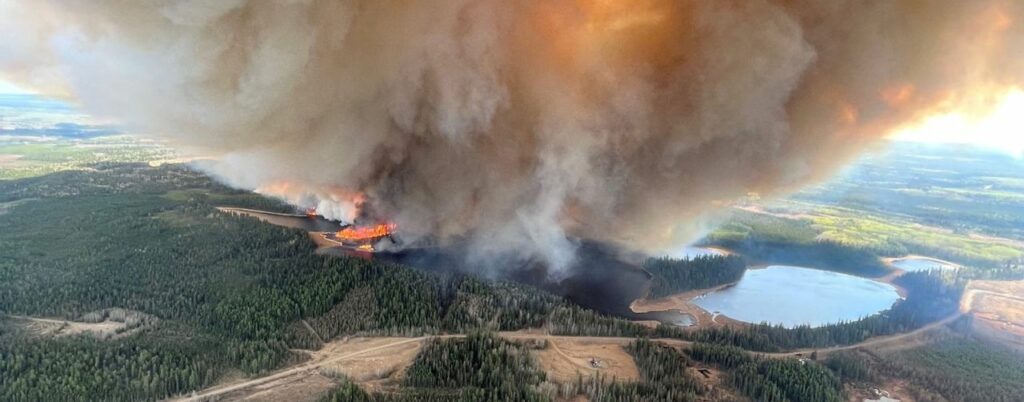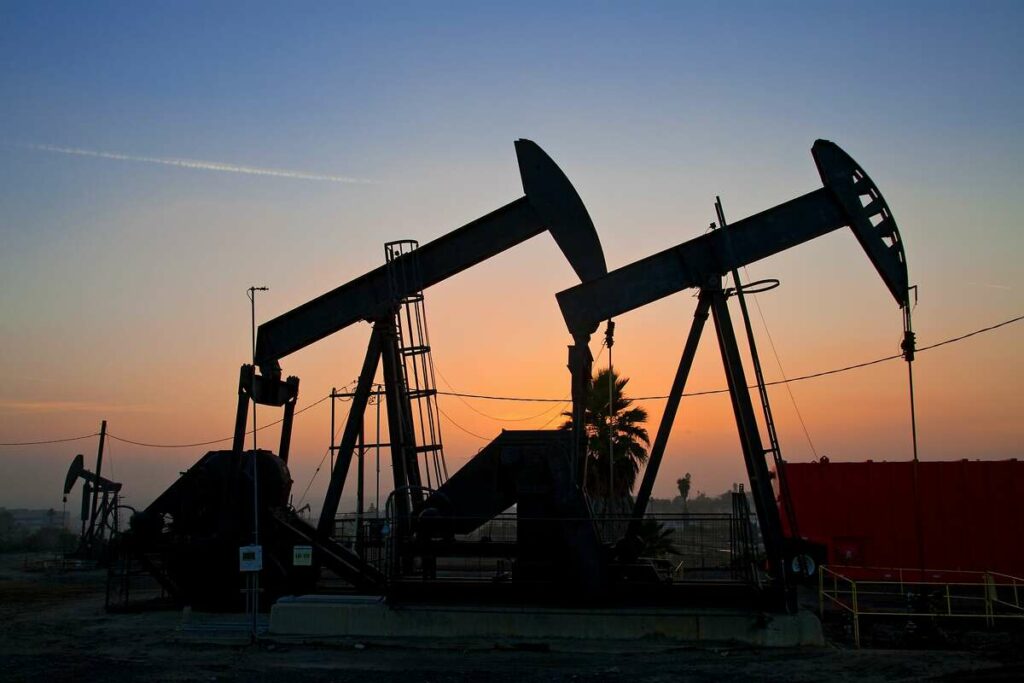All that pie in the sky about carbon pricing has turned into pie in the face for the deplorables. And so the Canadian province of Alberta is removing its fuel tax of 13 cents per litre and on the other side of this vast land, in tiny Prince Edward Island (no knock on its quaintness, but it’s just 5,660 square kilometres) they’re doing it the old fashioned way, taking the money in then recycling it via the bureaucracy into $20 million in rebates. One newspaper wondered whether other provinces would follow suit, before asserting that “record” gas prices are “the result of international market instability because of Russia’s invasion of Ukraine, lingering pandemic supply issues and post-COVID fuel demand” without mentioning that bit where governments deliberately suppressed supply and raised prices. But it’s kind of important to the story, even in the United States, especially since the usual suspects continually tell us the public is like totally galvanized on climate man and willing to make any sacrifice short of… well, paying more for gas or some dang thing.
Thus some Yale expert told a White House conference the day after Putin attacked Ukraine that with American public opinion swinging massively toward climate alarmism “we are so achingly close to being able to take national action even though we haven’t gotten there yet.”
Yeah and maybe we’re not going to get there. Over at “Greenbiz”, a free newsletter apparently worth every penny, Joel Makower asks petulantly “Remember climate change?” He admits that “With a brutal war and humanitarian crisis raging in Eastern Europe, a resulting global energy crisis, a quickly unfolding food crisis, a shaky global economy, raging inflation — oh, and a still-rampaging pandemic, with all its health and mental health impacts — it’s been not-so-easy to keep the climate crisis top of mind.” And even concedes that with things like “jobs; childcare; the cost of food, gasoline and other basic human needs… being front-burner, kitchen-table issues, something as long-term and abstract as the climate keeps getting shoved aside.” He even manages to articulate that “it’s human nature to want to avoid living in a state of constant terror. We focus on what’s in front of us and close to home, things that directly affect our families and communities today and tomorrow — not in 2030, or even later in 2022. Besides, there’s much to enjoy in our world, so why accentuate the negative? And who has the mental bandwidth to absorb it all, anyway?” But hey, with COP26 there was supposedly “a brief moment when much of the world — at least, its business, policy and civil society leaders — leaned into the terrifying reality of a rapidly changing climate. But in less than four months, the topic seems to have faded from public view.” Which tells you how seriously they took it.
Nonetheless his plan remains to stampede people into a frantic demand that something be done. “Given such seemingly impending doom, why aren’t we all marching in the streets and leaning on our leaders about the inadequate attention and action?” Especially since, an expert friend assured him, “Gen Z is very concerned about climate change.” But those dratted skeptics are loose. She added that “‘Twenty percent believe it’s just not real, not happening and not caused by man. We haven’t seen a 20 percent number since about 2008 or 2009. I mean, it’s just unbelievable.’ Those numbers have contributed to the backsliding of climate progress.” Not clear where the frontsliding was. But the idea from his “friend and marketing wizard” (sorry, did we imply she was a climate scientist?) is “This is why companies have to play a critical role and why investors need to continue to recognize that supply-chain disruptions and climate events are bad for business. And Wall Street needs to keep putting the heat on companies, and companies need to keep doing the right thing.” Which they’re not. “So far, company actions have been far from adequate.”
As for the public, phooey. “[S]he quickly added, ‘I don’t think you’re ever going to get the American public to believe it’s urgent and to do something different. We’re going to have to change the system for them.’” End of story. Or at least of article.
By the way the tiresome Michael Mann is back, with a new coauthored article saying if all the climate scaremongering has led people to give up in despair we can get them back into a lather by saying it’s not so bad if you all make huge sacrifices right now. (And the Washington Post also chimed in with a piece on how teachers can undermine parental influence on climate. Especially stupid Republican parents. Because “Of course, there are not two sides for them to know.”)
In fact the issue of costs is problematic. Including a new report from the British House of Lords, proof of the value of an Upper House, that says it’s time to stop bloviating and start producing real plans, including for energy security as well as funding. The Chair of the Industry and Regulators Committee that produced it even had the cheek to say “The amounts that can realistically be raised via surcharges on energy bills is not enough. Bills are regressive as the poor pay more of their income on energy costs; it is also unfair to the current generation as we are asking current billpayers to cover the huge costs of something that is designed to mainly benefit future generations.” So maybe the right approach is to borrow a ton of money and dump the debt onto the Fridays for the Future crowd. Our favourite quotation from committee chair Lord Hollick, however, is “there is no point planning a carbon-free energy future if you haven’t got a clue how you will get there or how it will be paid for.”
Dang. Knew we forgot something.



There is a House of Lords other than in Britian?
Boy! Did I stir up a hornet's nest (h/t Steig Larsson) by commenting about the confusion our New World cousins engender by contracting 'gasoline' to 'gas'! Accusations ranging from Little Lord Fauntleroy to a plain F- off, when I suggested that 'gas' is a liquid, and it was confusing when talking about fuel to call a liquid gas, and a gas, which could also be liquified, but only at high pressure, in a sealed container, but is also an entire phase of matter. Seems 'Gasoline' is a trade name, like Hoover, or Thermos, invented to get round the patented lamp oil 'Cazoline', while 'petrol', as we Brits call it, is short for Petroleum distillate, which is both sensible and unconfused. Petroleum meaning 'rock oil' and is descriptive of where crude oil comes from. Diesel is a similar petroleum distillate, with a much lower octane rating, that is not confused with petrol, because it is known universally as diesel, after Rudolf. Still, after many decades of attempting to stop Americans measuring stuff in 'quarts', pints, cups, gallons that are not the same as English gallons, and despite the digital Dollar having 100 Cents, 10 Dimes, but 4 quarters...I guess we should give up!